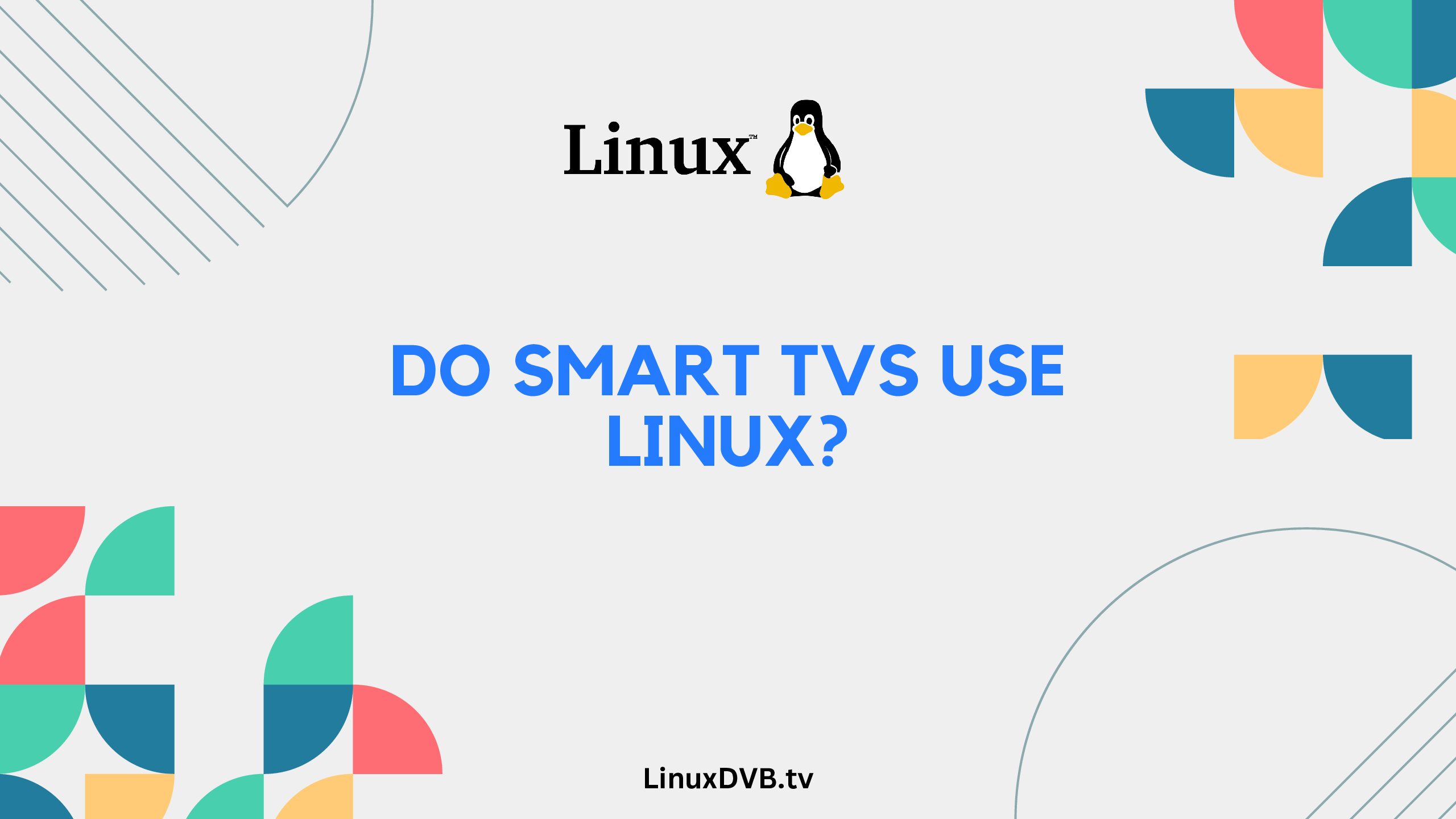Introduction:
In the era of interconnected devices, smart TVs have taken center stage, transforming the way we consume entertainment and information. But have you ever wondered about the underlying technology that powers these intelligent screens? This article delves into the intriguing question: Do smart TVs use Linux? Join us on a journey to explore the role of Linux in the realm of smart televisions, unveiling its integration, advantages, and potential downsides.
Table of Contents
Do Smart TVs Use Linux?
Smart TVs, the all-in-one entertainment hub of our homes, indeed utilize the power of Linux as their operating system. Linux, known for its versatility, security, and open-source nature, has found its way into the heart of modern smart televisions. From LG and Samsung to Sony and Panasonic, many leading TV manufacturers have embraced Linux to drive their smart TV offerings.
The Linux Advantage in Smart TVs:
Linux brings a multitude of advantages to the world of smart TVs:
1. Open-Source Flexibility:
Linux’s open-source nature allows TV manufacturers to customize the operating system according to their specific requirements. This flexibility leads to a diverse range of user interfaces, features, and apps tailored to the brand’s identity.
2. Stability and Security:
Linux is renowned for its stability and security features. Smart TV manufacturers can benefit from a robust foundation that minimizes crashes and vulnerabilities, providing a seamless and safe user experience.
3. Efficient Resource Management:
Linux’s efficient resource management ensures optimized performance on smart TVs. It enables smooth multitasking, quick app launches, and responsive navigation, enhancing user satisfaction.
4. Rich App Ecosystem:
Linux’s popularity and extensive developer community translate into a rich app ecosystem for smart TVs. Users can access a wide array of streaming services, games, productivity tools, and more, elevating their TV experience.
Exploring Linux Integration in Smart TVs:
Smart TV Boot Process:
At the heart of Linux’s integration is the boot process. When you power on your smart TV, the Linux kernel initializes the hardware, manages memory, and starts essential processes. This seamless boot process ensures a swift and hassle-free startup.
User Interface Customization:
Manufacturers leverage Linux to create captivating user interfaces (UIs). From the home screen layout to interactive menus, Linux allows for comprehensive UI customization, enabling brands to deliver a unique and engaging experience.
App Development and Compatibility:
Linux’s open nature encourages developers to create apps compatible with smart TVs. Brands can partner with developers to craft apps that cater to the preferences and needs of their target audience.
Potential Drawbacks of Using Linux in Smart TVs:
1. Learning Curve for Manufacturers:
While Linux’s customization is a strength, it can also pose a challenge. Manufacturers need to invest time in understanding and working with Linux, which can lead to a learning curve.
2. Limited Manufacturer Support:
Unlike proprietary systems, Linux-based smart TVs might have limited manufacturer support. Users could face challenges in finding immediate assistance or troubleshooting solutions.
FAQs about Smart TVs and Linux:
Can I install my own Linux apps on a smart TV?
Generally, smart TVs come with a predefined set of apps. While it’s possible to add new apps, the process might require technical expertise and could void warranties.
Are all smart TVs using Linux?
A: While not all smart TVs use Linux, it’s a popular choice due to its flexibility and open-source nature. Some brands opt for other operating systems, such as Android TV.
Can I replace the Linux OS on my smart TV?
A: Replacing the OS on a smart TV can be complex and risky. It’s recommended to stick with the manufacturer’s OS to ensure stability and compatibility.
Does using Linux make smart TVs more susceptible to hacking?
Linux’s security features make it a reliable choice for smart TVs. However, like any connected device, smart TVs should be updated regularly to stay protected against potential vulnerabilities.
Can I modify the Linux kernel on my smart TV?
Modifying the Linux kernel requires advanced technical skills and can lead to system instability. It’s advised to avoid altering the kernel unless you have expertise in this area.
Is Linux the only OS used in smart TVs?
No, Linux is one of several operating systems used in smart TVs. Android TV and proprietary systems are also prevalent choices among manufacturers.
What is the Linux alternative to Android TV?
Linux-based alternatives to Android TV include various custom Linux distributions tailored for smart TVs.
Which is better Linux or Android TV?
The choice depends on your preferences and needs.What is Linux TV?
Linux TV refers to using the Linux operating system to power television-related devices.Do smart TVs use Linux?
Yes, many smart TVs use Linux as their operating system.Can Linux run on TV?
Yes, Linux can be adapted to run on TVs and power smart TV functionalities.Which operating system is best for smart TV Linux or Android?
Both Linux and Android have their strengths, so it depends on the specific requirements of the TV and user preferences.Is Linux operating system good for smart TV?
Yes, Linux can be a good choice for a smart TV operating system due to its customization and open-source nature.Which is better for TV Linux or Android?
The choice between Linux and Android for a TV depends on factors like user interface, app availability, and personal preferences.What is the difference between Linux OS and Android OS in TV?
Linux is a broader category of operating systems, while Android is a specific Linux-based OS designed primarily for mobile and TV devices.Which is better Android TV or Linux TV?
The decision between Android TV and Linux TV depends on factors like user interface, app ecosystem, and the TV’s intended usage.Conclusion:
As we explore the inner workings of smart TVs, the role of Linux becomes evident. Its open-source nature, customization options, and security features make it an ideal choice for manufacturers striving to deliver captivating and reliable smart TV experiences. While there are challenges to navigate, the benefits of using Linux in smart TVs ultimately contribute to the seamless integration of technology into our daily lives.

